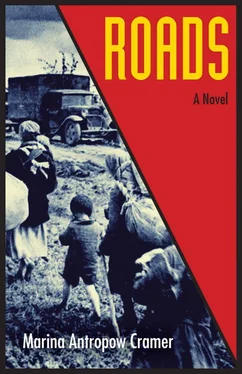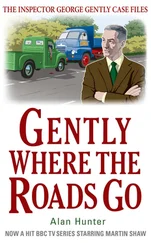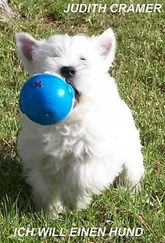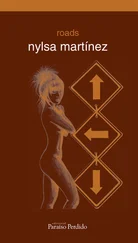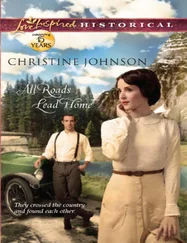“Galya, dochenka .” Ilya moved toward the child, but this time Ksenia stopped him, a firm hand restraining his arm.
“You did not tell the truth. That is the same as lying. No different. If you go to confession and do not tell the priest all your transgressions, does that mean you did not commit them? No, the sin is on your head and in your heart until you make it right.” She pointed an unforgiving finger at her daughter.
Then her face softened, just a bit; the clench of her jaw relaxed a little. She lowered her hand and leaned forward, her voice a whisper. “We live in a sea of falsehoods, child. This godless regime steals from the people and lies with every breath. How can we survive as a family if we do not tell each other the truth?”
“Mama, I am so sorry. It was my mistake, but I thought I could fix everything, and no one would have to know. You were so sick!” Galina stopped talking, remembering her mother’s face, drained and drawn, her tall thin frame racked by deep fits of bronchial coughing. Please, please don’t die , Galina had begged, repeating the silent mantra while she cooked the soup. Only a carrot and some wild parsley, but thickened with the extra rice, it had a comforting texture that reminded her of better times. She had inhaled the starchy aroma with almost sensual pleasure, ladled the soup into Ksenia’s bowl like a healing potion, taking care not to spill a drop, watching her mother eat, then lean back on her pillow and sleep.
And it had worked, hadn’t it? Within two days, Ksenia was up, the fever gone, the rumbling cough a lingering annoyance, the household back in her strong hands.
They were interrupted by Maksim bursting into the kitchen from the front room, flushed and breathless. “I have passed the entrance examination, Mama,” he announced, ignoring his sister and father. “I start university in September.” He looked around, catching the tension in the room. “What has happened?”
Ksenia rose. “Nothing, son, we were just talking. Galina, take this rice to Nina Mihailovna right now. Tell her she will have the rest next week. Ilya, where is your shirt?” She turned to Maksim. “Tell me everything.”
Ilya walked his daughter through the front room to the apartment door. “Hurry back,” he winked. “I have an itchy spot between my shoulder blades.”
“MY BROTHER IS the most boring person alive,” Galina said. “He keeps his nose in a book and his head in the clouds.”
She loved her brother. Of course she did. Even if Maksim, four years her senior, was a stranger to her. From a young age he had grand plans for his own future: he would be a doctor. He would wear a white coat, heal the sick, make a contribution to the science of medicine, advance the knowledge of disease. People would treat him with respect.
If he had political opinions, he kept them to himself; his only focus was on how to take advantage of the new opportunities the Soviet educational system offered young people. You no longer had to be well born or a landowner to realize your potential. It helped to have connections to powerful people, but if you had ability and managed to steer the right course through the bureaucratic maze of tests and forms, you received your reward—an education second to none in Europe, based on recognition of your gifts.
In spite of his gifts, or maybe because of them, Galina could not recall a single interesting conversation with him. He found her so intellectually inferior that they simply dismissed each other, occupying the same cramped space but living utterly separate lives.
The living space had been a point of conflict between them for years. Try as she might to obey his demand for privacy, his side of the room drew her like a magnet. The seashells in his collection looked no different from any she had picked up and discarded on the beach. Why had he chosen these? He kept insects in another box, with little cardboard dividers between them, and labels inked in a precise hand, as if anyone didn’t know this was a cicada, this a moth or a bee.
No matter how careful she was to put things back where they belonged, Maksim always knew when she had trespassed on his side of the room, as if her eyes had left tracks along the shelves.
Still, things remained cordial between them, until the day she dropped the mouse skeleton. She had only wanted to see it better, reaching in among the skulls ranged along the back edge of his desk. Weasel, squirrel, rabbit, vole, sheep—each carefully labeled, frightening with their vacant eye sockets and bared teeth. The mouse was on a little paper tray, partially obscured by the tail of a faded translucent snakeskin.
She had picked it up, daring to touch, ever so carefully, the minuscule head, imagining the weightless spine covered with sleek gray fur, the rib cage concealing a tiny beating heart.
“Galya,” her mother had called from the kitchen, “come help me with this.” Galina had turned, startled and guilty; the mouse slipped from her hand, landing on the floor with no more than a whisper of impact.
“What have I done?” she wailed softly, scooping the mangled remains up into their tray, her fingers coated with bone dust. “What have I done?”
Maksim had been beside himself, of course, harboring a cold fury that degenerated into contempt only after many weeks had passed. At first, she understood, accepting the burden of fault her carelessness had caused. As time wore on, though, and no detente seemed possible, she lost her patience.
“I’m your sister,” she reminded him. “The only one you have. There might not be much food, but there are still plenty of mice.”
“That’s true,” he conceded. “Though one of you is more than enough. Just stay out of my things, will you, while I’m away at school.”
* * *
When Maksim entered university, and Galina was nearly fifteen, he persuaded his parents of his need for a private room. “I need more than a curtain separating my cot from hers. When I’m at home, I need a place to study,” he maintained, “and a place to keep my books away from prying eyes. Mama, forgive me for showing you such things, but do you want Galya exposed to this? Look.” He opened a medical textbook and flipped through the pages, slowly enough to allow Ksenia to glimpse the graphic anatomical cutaways and diseased body parts rendered more gruesome by stark unretouched photography.
Together, mother and son added a small room to their apartment, stealing a corner of the already tiny inner courtyard, scrounging for scrap building materials through the neighboring streets.
Ilya could not help with the work. His one attempt at framing the outside wall made him unable to complete a jewelry order by the promised delivery date. In the days it took for his hand tremors to subside, the general’s daughter’s birthday passed, and Ilya was forced to accept reduced payment for the lovely brooch carved meticulously with the girl’s name.
“It looks like the rest of you must do the hammering if I’m to continue working.” He smiled ruefully at his assembled family, stirring the weak tea in his glass as if there were sugar in it.
“You’ve already done enough, Father,” Maksim replied. “I never expected my new room would have a window.”
“Yes, imagine that! A window!” Galina chimed in, ignoring the look of pained annoyance that crossed her brother’s face when she began to speak. She scooped a teaspoonful of mulberry jam onto stale bread, then scraped most of it off before Ksenia could voice the disapproval evident on her face. Galina tapped the excess jam back into the jar but could not resist licking the spoon.
By the end of the week, the room was done. Ilya, with his aesthetic sense, advised them on the best way to fit the disparate pieces into firm, solid-looking walls. He took his toolbox downtown and set up his traveling workbench near a building repair project. In two days, he looped wire into YALTA 1940, and enough ANNA, ELISAVETA, and MARIA pins for the workmen to trade for a small bucket of fresh plaster. They could have used two, but with Ksenia’s careful hand it covered the three inside walls enough to seal any spaces between planks and give the room a fresh, cheerful appearance.
Читать дальше
